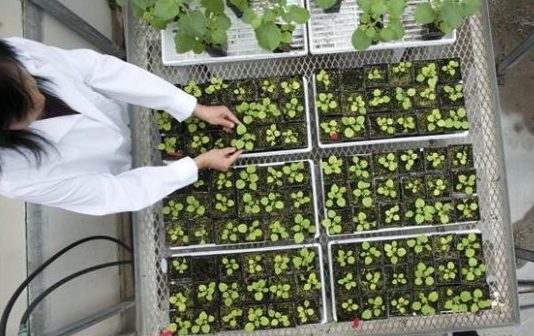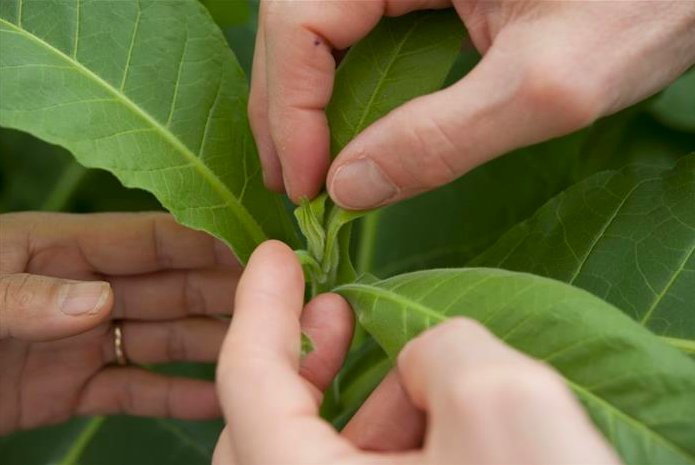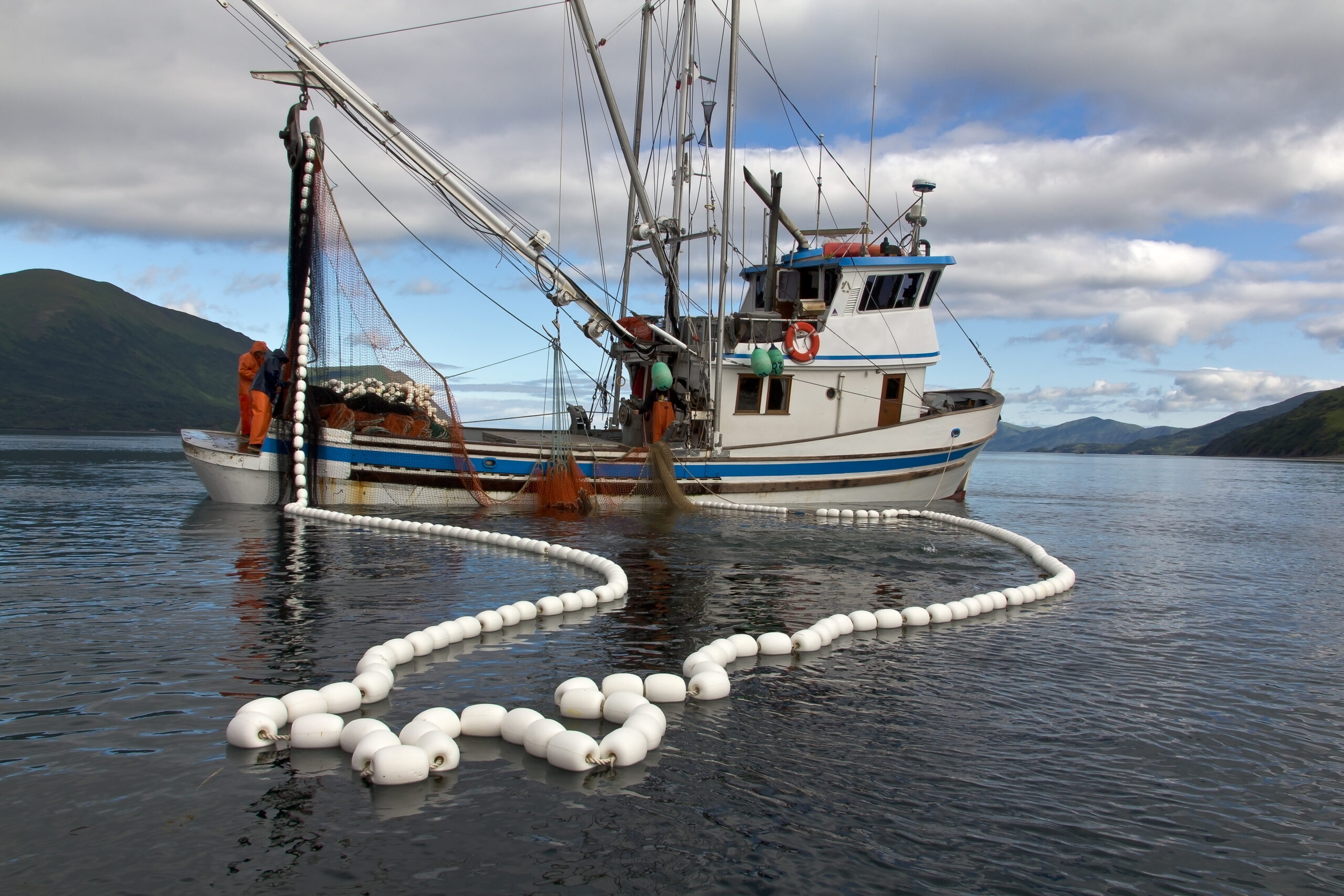BinSentry / HANOR study reveals ‘invisible’ cause of animal feed outages
Study results demonstrate — for the first time anywhere — a measurable correlation between out-of-feed events, feed conversion ratios and the bottom line of producers.
Austin, Texas and Kitchener, Ontario -- New research by BinSentry in collaboration with pork industry leader HANOR has found the vast majority of animal feed outages are caused by bin slide management errors — not running out of feed on site — a previously invisible problem that increased feed conversion ratios (FCR) by as much as 7 basis points, eroding producer profitability.
The year-long study tracked out-of-feed events at 100 HANOR hog barns using BinSentry’s 3D optical sensors and AI-powered software technology.
The study found the vast majority of feed outages were due to bin slide management mistakes — where the slide on a full bin wasn’t opened after another bin was emptied. Sites experiencing the most out-of-feed events saw FCRs 7 basis points higher, costing $3.15 per pig, compared to sites with zero outages. That’s about $4,400 per barn of annual opportunity.
The results demonstrate — for the first time anywhere — a whole new category of feed outages and a measurable correlation between out-of-feed events, FCR and the bottom line of producers.
“This is game-changing information,” said Ben Allen, BinSentry CEO. “Before now, the industry was unable to identify a direct correlation between feed outages and FCR — we knew it must exist, but we just couldn’t find it. It turns out we were missing 80 percent of the problem because we didn’t have any reliable way to see what was going on inside the feed bins. Now we do.”
BinSentry technology allows producers to precisely track feed bin levels and optimize feed management in real time while eliminating the need for unreliable and dangerous manual inventory checks.
The company’s new Out-of-Feed Insights dashboard analyzes the sensor data with advanced algorithms and AI technology to detect and identify out-of-feed issues. This allows producers to monitor activity in all their barns, track the data over time and improve the weakest performers in their operation through the use of automated notifications.
“Feed conversion ratios are one of the most important metrics for animal producers,” says Mauricio Diaz, President of HANOR, the 14th largest pork producer in the United States. “Being able to see and address all feed issues is a key component to lowering feed conversion ratios, which lowers costs and increases sustainability.”
The HANOR case study confirms what BinSentry has discovered by monitoring over 25,000 feed bins owned by the biggest livestock and poultry producers in North America: that nearly 80% of out-of-feed events are caused by feed bin slide management errors, while only 20% are due to running out of feed.
While this study is focused on pork, work under way with poultry producers is expected to generate similar results, Allen said.
“Producers are fighting every day to improve by fractions of a point of FCR, but it’s so hard to find those savings,” Allen said. “This study shows the fastest way to lower your FCR is managing bin slide issues at your barns. We’ve identified this giant category of feed outages that nobody knew was there, and it’s costing producers real money every single day.
With BinSentry technology, not only can you see these issues, your teams can be notified to take corrective actions, saving operators significant time and expense.”
Visit the BinSentry website for more details about the HANOR case study.
AntoXa and SwiftPharma to present plant-made anti-ricin antibody technology to NATO expert panel
GUELPH, Ont., Canada, August 14, 2024 — AntoXa Corporation, a Canadian biopharmaceutical company developing medical countermeasures against biological and chemical agents, and Belgium-based SwiftPharma have been invited to present to the NATO Biological Defense Medical Expert Panel (BIO DEF MED) on Sept. 19 in Tournai, Belgium.
The BIO DEF MED meetings, which take place Sept. 16-20, focus on countermeasures for natural and manmade biological agents, including ricin, a naturally occurring protein from the castor-bean plant that is extremely toxic to humans when inhaled or injected.
AntoXa and SwiftPharma will provide the panel with an update on their development and commercialization of a plant-made antibody against ricin exposure.
“The technical presentation is an excellent opportunity to provide the panel with detailed information about the patented process for manufacturing the PhD9 monoclonal antibody (mAb) treatment for ricin exposure,” said Jeroen Hofenk, Founder and CSO of SwiftPharma.
The process for manufacturing PhD9, which uses the plant-based vivoXPRESS® platform, was developed by AntoXa under license from Defence Research & Development Canada (DRDC). The process is patented in Canada and the United States. AntoXa has an exclusive license from DRDC to develop and produce PhD9 for global markets.
The company has entered into a strategic collaboration agreement with SwiftPharma to accelerate advancement of the drug in European, Middle Eastern and African (EMEA) markets. Swift will use their recently completed state-of-the-art GMP manufacturing facility in Belgium to produce PhD9 for clinical trials and commercial sale.
“Our plant-based manufacturing platform addresses the need for cost-effective production of antibody drugs for a variety of applications, including antidotes for ricin and other potential bioterrorism threats,” said Dr. Don Stewart, CEO of AntoXa, a wholly-owned subsidiary of PlantForm Corporation.
Ricin is listed as a Category B threat agent by the U.S. Centers for Disease Control and Prevention due to its ease of production, worldwide availability, relative stability and extreme lethality. It acts very quickly and leaves a short window for administering therapeutic antibodies.
There is currently no approved antidote for ricin poisoning. The PhD9 antibody drug candidate prevents ricin from penetrating cells. Previous in vitro and in vivo studies conducted by DRDC and other independent agencies found the plant-made version of the antibody showed therapeutic efficacy against ricin intoxication.
PlantForm, AAFC researchers receive funding for PEDv vaccine development
TORONTO, Canada, June 17, 2024 – Canadian biopharmaceutical company PlantForm Corporation announced new funding from the Canadian Swine Research and Development Cluster (CSRDC) to support research and collaboration with scientists from Agriculture and Agri-Food Canada (AAFC) to develop an inexpensive and effective oral vaccine that protects swine herds against porcine epidemic diarrhea virus (PEDv).
The project leverages PlantForm’s vivoXPRESS® plant-based manufacturing platform, and technology developed by AAFC researcher Dr. Rima Menassa to deliver an oral, plant-expressed vaccine against PEDv. The vaccine is designed to be delivered as a feed additive given to pregnant sows, enabling the transfer of protective antibodies to piglets via sow milk.
The three-year, $341,600 project is part of the Swine Innovation Porc (SIP) Swine Cluster 4 Research program, funded in part by the Government of Canada under the Sustainable Canadian Agricultural Partnership’s AgriScience Program - Cluster Component.
The CSRDC (also known as Swine Innovation Porc) will provide nearly 50 per cent of the funding through AAFC for the project, with PlantForm contributing the rest in cash and in-kind services.
“We’re proud to be part of the ongoing effort to protect animal health and support Canadian agriculture by developing the world’s first effective and inexpensive plant-made vaccine against this devastating disease in pigs,” said Dr. Don Stewart, PlantForm President and CEO.
PEDv is a serious and highly contagious swine disease that leads to almost 100% mortality in suckling pigs, although it poses no threat to humans and is not a food safety issue. Common in Europe and Asia since the 1970s, PEDv is relatively recent in North America. In the United States, eight million pigs died in a one-year epidemic after PEDv was first detected in 2013. The virus has since found its way to Canada.
While PEDv is almost always lethal for nursing piglets, protection can be provided by maternal antibodies passed on through sow’s milk. Although more than half of older pigs exposed to the virus recover, the illness weakens these surviving pigs and reduces productivity; therefore, preventing PEDv infection is a top priority for the global swine industry. Current vaccines are expensive to make and only partially effective.
The project builds upon work supported by the Canadian Agricultural Partnership’s Agri Science Program
– Cluster Component from 2018-2023.
It combines PlantForm’s transient protein expression know-how with technology developed by Dr. Menassa for a plant-made subunit vaccine that uses parts of the PEDV antigen best suited to inducing an immune response.
These virus-like particles (VLPs) are considered excellent vaccine candidates because while they resemble the virus protein structure, they are non-pathogenic and can be administered orally without an adjuvant to boost immune response.
The goal is to develop vaccine candidates that can be freeze-dried and encapsulated for convenient transportation and storage, allowing farmers to easily add the vaccine to their animals’ feed. PlantForm intends to license the PEDv vaccine to international animal health companies.
“Most, if not all, of the vaccines currently available or in advanced trials are produced using mammalian cell culture methods and they’re injectable — making them inherently expensive compared to an oral plant-made vaccine,” Stewart said. “Plus, production cycles are much faster using the vivoXPRESS® system, which is also more flexible, allowing us to respond quickly to new strains of the virus. This is very important because PEDv is a coronavirus, and we learned during the COVID-19 pandemic that coronaviruses can mutate very quickly.”
PlantForm and UBC researcher receive GlycoNet funds to develop novel treatment for Type-2 diabetes
PlantForm Corporation has teamed up with a University of British Columbia research group led by Dr. Joerg Bohlmann to develop a novel plant-based treatment option for Type-2 diabetes and obesity, with support from GlycoNet (Canadian Glycomics Network).
Bohlmann is a GlycoNet investigator and renowned leader in plant specialized metabolism, especially the genes and enzymes involved in the biosynthesis of high-value plant bioproducts. In particular, the Bohlmann lab has characterized the entire biosynthetic pathway of Montbretin A (MbA), a small molecule found in montbretia (Crocosmia), an ornamental plant of the Iris family.
Because of its unique pharmacological properties, MbA is being developed as a treatment for Type-2 diabetes and obesity, and it has been approved by Health Canada for Phase 1 clinical trials. However, MbA is only found in very small amounts and during limited periods of montbretia’s annual cycle. For clinical trials and commercialization to be feasible, researchers need a reliable, economical way to produce large quantities of MbA.
This collaboration is focused on using PlantForm’s plant-based vivoXPRESS® manufacturing platform to produce a stable and scalable supply of MbA.
“PlantForm’s vivoXPRESS platform is highly versatile and uniquely suited to meeting the need for cost-effective, large-scale production of proteins, enzymes, antibodies, vaccines and other molecules used in a wide range of healthcare applications ,” said Dr. Don Stewart, PlantForm’s President and CEO. “We’re very excited to be collaborating with the Bohlmann lab and leveraging funding from GlycoNet to develop a better way to treat a devastating disease and improve quality of life for millions of people.”
Type-2 diabetes affects half a billion people worldwide and is one of the top 10 diseases causing premature death. Previous research has shown that MbA selectively inhibits human pancreatic α-amylase — a critical enzyme involved in breaking down starches and controlling blood sugar — without the side-effects of existing diabetes medications.
“Assuming a daily dose of 200 mg per patient, treating all Canadians with Type-2 diabetes would require more than 100,000 kg of MbA every year,” said Bohlmann. Proof-of-concept work using vivoXPRESS has already generated yields of MbA 10 times higher than could be obtained from montbretia plants. “The outcome of this strategic partnership will be a scalable production system, which is essential for the successful development and future commercialization of MbA.”
The immediate aim of the project will be to optimize the vivoXPRESS system to maximize yields of MbA while reducing production of unwanted co-metabolites. The long-term goal is to bring MbA to the mass market as either a pharmaceutical therapy or functional food / nutritional supplement.
“Scientifically, this project builds upon years of cutting-edge work by each of the partners,” said Stewart. “Commercially, it’s tremendously exciting because of the potential to provide a new and effective treatment for a chronic disease that affects so many people.”
PlantForm, Bio-Manguinhos/Fiocruz sign new agreement to develop biosimilar pembrolizumab cancer drug and additional products
Canadian biopharmaceutical innovator PlantForm Corporation and Bio-Manguinhos / Fiocruz (Health Ministry of Brazil) have signed a collaborative research and development agreement to develop a biosimilar pembrolizumab and up to five future products for the Brazilian and other world markets.
Pembrolizumab is widely used alone or in combination with other drugs to treat a variety of cancers including certain types of breast cancer, skin cancer (including melanoma), non-small cell lung cancer and more than a dozen other types.
The collaboration expands upon an agreement signed in early 2021 to enable scientific and technical cooperation aimed at bringing low-cost pembrolizumab to Brazil and to develop future products to meet the demand for more affordable drugs for the Brazilian healthcare system.
“We’re very pleased to continue working with our Brazilian colleagues to advance our strategy for making effective, affordable cancer drugs available to millions of Brazilians. This updated agreement is a clear sign of their faith in our low-cost, plant-based vivoXPRESS® manufacturing platform,” said Dr. Don Stewart, PlantForm’s President and CEO. “It will also allow Bio-Manguinhos to develop up to five future drugs using the platform.”
The brand name version of pembrolizumab — Keytruda® by Merck — is on track to be the world’s best-selling drug with annual sales expected to top $35 billion by 2028, when it will lose key patent protection in Brazil.
Bio-Manguinhos is a Brazilian government organization responsible for technology development and production of vaccines, reagents and biopharmaceuticals to meet the country’s public health needs. The collaboration with PlantForm will culminate with Phase 1 and Phase 3 clinical trials of biosimilar pembrolizumab. Following successful completion of clinical trials and entry into the Brazilian market through Bio-Manguinhos/Fiocruz, PlantForm will take biosimilar pembrolizumab to world markets.
Stewart said the pembrolizumab research program has been making excellent progress and the development pathway puts the PlantForm-BioManguinhos product in a solid position to be one of the first biosimilar pembrolizumab on the market in 2028.
“This project further validates the versatility and capabilities of our plant-based system for developing a variety of protein drugs and vaccines for tackling major diseases that afflict millions of people every year,” he said. “Our vivoXPRESS manufacturing platform is made-in-Canada innovation with the potential to make these important biologic drugs more accessible and affordable worldwide.”
U.S. patent granted for Made-in-Canada ricin antibody technology
The U.S. Patent Office has granted a patent for a plant-based manufacturing process to produce an antibody for treatment of ricin exposure, an outcome of research and development by AntoXa Corporation under contract with Defence Research & Development Canada (DRDC), an Agency of the Canadian Department of National Defence.
 AntoXa, a wholly-owned subsidiary of Canadian biopharmaceutical company PlantForm Corporation, has an exclusive license from DRDC to develop and produce the PhD9 monoclonal antibody treatment in plants for sale in markets worldwide. The process has received United States Patent No. 11,447,789, issued to His Majesty the King in Right of Canada as represented by the Minister of National Defence.
AntoXa, a wholly-owned subsidiary of Canadian biopharmaceutical company PlantForm Corporation, has an exclusive license from DRDC to develop and produce the PhD9 monoclonal antibody treatment in plants for sale in markets worldwide. The process has received United States Patent No. 11,447,789, issued to His Majesty the King in Right of Canada as represented by the Minister of National Defence.
“Our plant-based, made-in-Canada manufacturing platform uniquely addresses the critical need for cost-effective, large-scale production of antidotes for ricin and other potential bioterrorism threats,” said Dr. Don Stewart, PlantForm President and CEO. “Safety and efficacy studies showed therapeutic efficacy against ricin intoxication and validate the capability of our proprietary vivoXPRESS® manufacturing platform to produce a best-in-class antibody treatment for ricin exposure.”
Ricin, a naturally occurring protein from the castor-bean plant, Ricinus communis, is extremely toxic to humans when inhaled or injected. It is listed as a Category B threat agent by the U.S. Centers for Disease Control and Prevention due to its ease of production, worldwide availability, relative stability and extreme lethality. There is currently no approved antidote against ricin poisoning. It acts very quickly and leaves a short window for administering therapeutic antibodies.
The PhD9 antibody drug candidate prevents ricin from penetrating cells. The PhD9 anti-ricin antibody was developed, in part, through a collaborative effort by the Medical Countermeasure Consortium (MCMC) under the Chemical, Biological and Radiological Memorandum of Understanding (CBR MOU), which includes Australia, Canada, the United Kingdom and the United States of America.
Next steps for the commercialization of PhD9 are to manufacture a GMP lot for further pre-clinical studies and a Phase 1 human clinical trial, which is dependent on raising the necessary funds for scale up and other activities necessary to obtain regulatory approvals, Stewart said. Medical countermeasures do not require Phase 2 and Phase 3 human efficacy trials for ethical reasons, therefore the path to regulatory approval is shorter than for other pharmaceuticals.
For more information, visit AntoXa Corporation's website.
Transport Genie launches reforestation initiative to lower agri-food sector’s carbon footprint
Canadian agri-tech start-up Transport Genie Ltd. announced plans to help customers in the farm animal transportation sector lower their carbon footprint by sponsoring global reforestation efforts.
The award-winning precision monitoring company, which makes sensors that monitor environmental conditions in livestock transport trucks, will donate a portion of sales from every Transport Genie system to support planting more trees.
“Last year was a great year for Transport Genie in terms of growing the business. This year, we want to give back to our customers and the animal protein industry by helping the planet and helping the agriculture sector lower its carbon footprint,” said Joel Sotomayor, Transport Genie President and CEO.
In 2022, Transport Genie experienced strong growth across all key metrics including customer acquisition, market penetration and transactional volumes. The company was also one of 10 global innovators chosen to take part in Startupbootcamp Australia’s FoodTech Tasmania, a three-month business accelerator program. Sotomayor aims to do even better in 2023.
“We’ve deployed thousands of sensors that have generated nearly 1.2 million data points related to microclimate conditions which we will use to continue improving farm animal health and welfare during transportation,” said Sotomayor. “At the same time, supporting reforestation and biodiversity by planting trees is one way to help the planet and help our customers lower their carbon footprint at no cost to them.”
Transport Genie will also calculate carbon credits to show customers how much their support offsets greenhouse gas emissions. Transport Genie’s scientific advisory board is working with Canadian experts in carbon offsets to develop an algorithm that calculates how much carbon will be sequestered over time by the trees planted.
“This initiative aligns perfectly with our circular economy philosophy and sustainability goals,” said Klaire Libre, Transport Genie’s marketing manager. “All components of our sensors, including the batteries, are designed to be easily replaced and refurbished, minimizing waste and extending the lifespan of the technology. Ultimately, we want consumers to have the choice of selecting meat and poultry products in the grocery store with labelling that clearly shows their food was made ethically and sustainably at every step along the supply chain.”
WelTel CEO joins ‘Women Leading in Health Tech’ panel at UN
WelTel Inc. is on a mission to improve health equity through digital innovation, and the world is taking notice.
 WelTel co-founder and CEO Dr. Gabrielle Serafini will join the “Women Leading in Health Tech” panel discussion at the upcoming Women’s Entrepreneurship Day Organization (WEDO) Summit on May 20 at the United Nations in New York.
WelTel co-founder and CEO Dr. Gabrielle Serafini will join the “Women Leading in Health Tech” panel discussion at the upcoming Women’s Entrepreneurship Day Organization (WEDO) Summit on May 20 at the United Nations in New York.
“I’m thrilled to be invited to contribute to this amazing event and meet inspiring women entrepreneurs whose companies are taking action to advance global health equity by harnessing the power of cloud technology,” Serafini said.
Sponsored by Amazon Web Services (AWS), the panel includes four other trailblazing women founders and CEOs, and is moderated by Maggie Carter, Global Lead AWS Social Impact.
At the summit, Serafini will discuss recent work with First Nations and Maori communities in Canada and New Zealand, where WelTel’s text-first, multilingual platform is promoting health and language equity by ensuring everyone has access to timely, appropriate and culturally-safe virtual health care in their language of choice. She’ll also touch on WelTel’s role in Rwanda’s successful response to the COVID-19 pandemic.
“WelTel’s digital health tools balance the functionality needed to overcome the barriers of distance and geography with a community-directed approach to health care that respects the priorities and traditions of the communities we serve.”
See the WelTel website for more.
mPowered teams up with Ocean Set to build ocean data marketplace
Montreal, Canada -- Canadian blockchain technology provider mPowered has teamed up with Newfoundland-based start-up Ocean Set to support the health of our oceans by building the world’s first data marketplace designed specifically for ocean-related data.
 mPowered, a Web3 company founded in Guelph, Ont., but now based in Montreal, is providing the technology stack that will power the marketplace. Ocean Set aims to make it easy for users to access, prepare, share and exchange data and algorithms about everything from ocean currents and temperatures to fisheries, offshore energy leases, and more.
mPowered, a Web3 company founded in Guelph, Ont., but now based in Montreal, is providing the technology stack that will power the marketplace. Ocean Set aims to make it easy for users to access, prepare, share and exchange data and algorithms about everything from ocean currents and temperatures to fisheries, offshore energy leases, and more.
“mPowered was initially created to help individuals and companies in the agri-food sector take ownership of their data and benefit from sharing it,” said mPowered CEO Joel Sotomayor. “Expanding our focus to the ocean data economy and protecting marine environments is a great opportunity that fits with our ‘data as a common good’ philosophy and we look forward to helping make the Ocean Set data marketplace a success.”
Peter Rawsthorne, Ocean Set’s founder and president, said the marketplace meets growing demand for a simple, secure platform for stakeholders in the ocean sector to access, manage, optimize and share potentially valuable data sets. mPowered’s blockchain-based ecosystem provides Ocean Set with the cryptographically secure, transparent and tamperproof tools needed to curate a frictionless environment for buying and selling data.
The Ocean Set data marketplace will be a valuable resource for companies, governments, and scientists in the fisheries, aquaculture, transportation, tourism, defence, and energy sectors, said Rawsthorne.
“Working with mPowered has helped Ocean Set build a trusted platform that will allow organizations to access, store, retrieve and profit from sharing ocean data sets without losing control of their data,” said Rawsthorne. “We believe this will encourage stakeholders to generate and share even more validated data which will support a sustainable ocean economy and protect marine ecosystems.”
WelTel named top innovator at Fraser Health iCademy pitch competition
Vancouver, B.C. — WelTel Inc. has been named Top Innovator by the Fraser Health Innovation Academy (iCademy) pitch competition.
The event was the culmination of a challenging program created by Fraser Health to foster collaboration with external partners and advance innovative solutions that significantly improve health services in the region.
WelTel was one of 60 B.C. companies that applied in 2019 to be part of the Innovation Academy’s inaugural cohort. Nine were shortlisted to present ideas, and four were selected to participate in the program, which was then interrupted by the COVID-19 pandemic. The pitch competition was finally held June 30, when the judging panel selected WelTel’s proposal for a project aimed at improving engagement and health outcomes for chronic disease patients.
“WelTel is grateful for the opportunity to participate in the Innovation Academy and kudos to Fraser Health for creating such an innovative program,” said Dr. Gabby Serafini, WelTel CEO. “We look forward to working with Fraser Health to deploy WelTel and to extend primary care services and improve the patient journey for people living with chronic illnesses, including cardiovascular disease, diabetes and COPD.”
During the six-month project, general practitioners, behavioural health coaches and a clinical psychologist will use WelTel’s SMS texting-based platform to strengthen patient-caregiver relationships, promote positive lifestyle changes and help patients set and track their health goals.
To learn more, visit the WelTel website.











